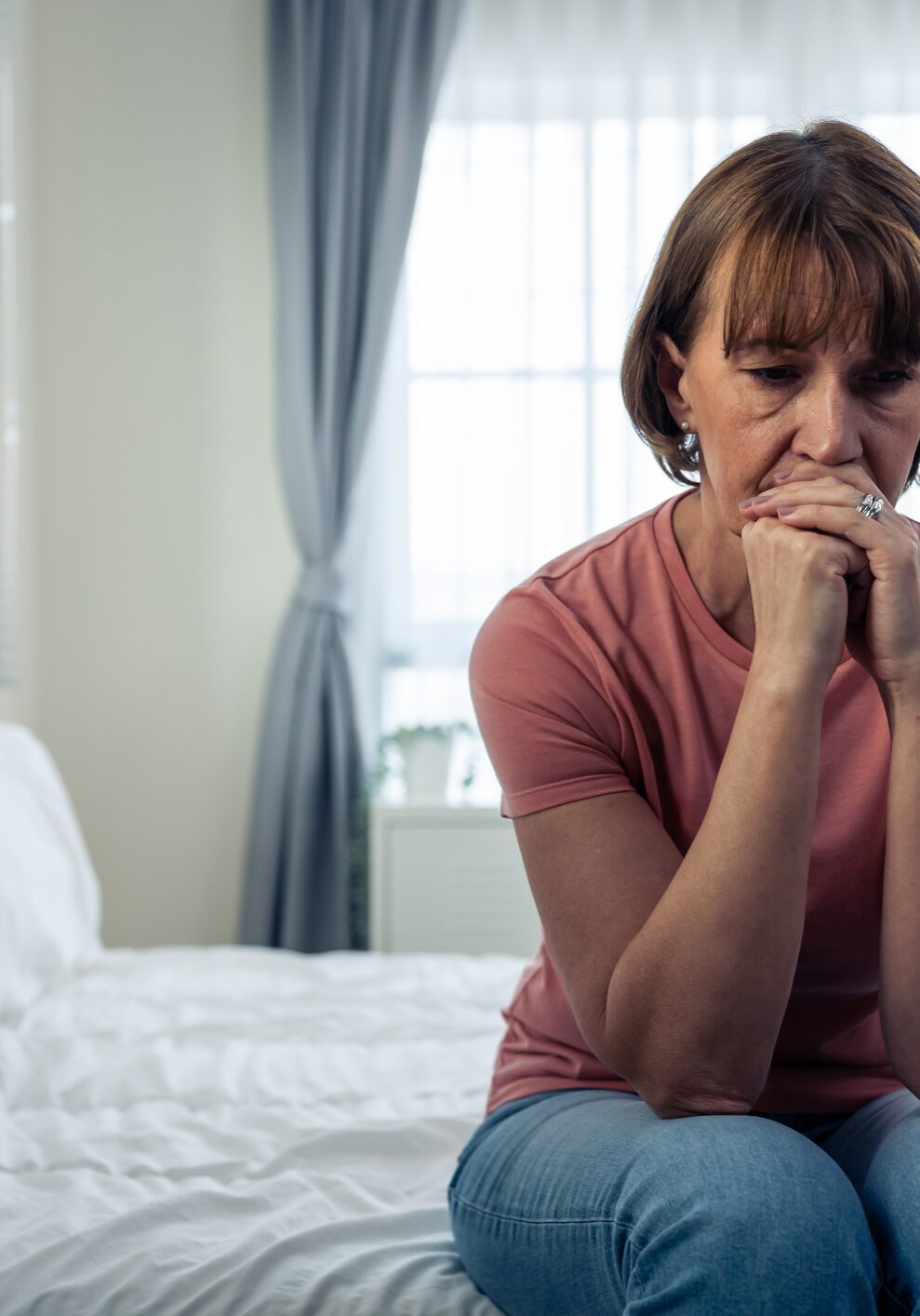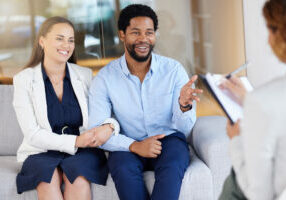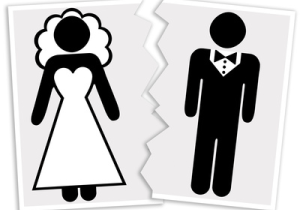An Anxiety Counselor Can Help Reduce or Eliminate The Symptoms of Anxiety!

Do I Have Anxiety? And Do I Need an Anxiety Therapist?
Anxiety is a sensation of fear, worry, panic, nervousness, and/or tension. Most of us, at some point or another, feel anxiety. For some, the sensation of anxiety or worry is more intense, occurs more frequently, and is more difficult to manage. In such cases, it is likely that the individual suffers from an anxiety disorder.
But whether your anxiety is frequent or occasional, happens in many situations or in specific circumstances, Anxiety Therapy can help you! A good anxiety therapist can teach you skills and techniques that will help you reduce anxiety both immediately when it happens, and will, over time, reduce the frequency and intensity of your anxiety altogether.
Symptoms of Anxiety That Anxiety Counseling and Anxiety Treatment Can Help With
Anxiety can manifest in a variety of physical, emotional, and cognitive symptoms. The specific symptoms and their severity can vary from person to person. Common symptoms of anxiety include:
- Excessive Worry: Persistent and uncontrollable worry about various aspects of life, often overestimating potential negative outcomes. For example, many of my patients who suffer from an anxiety disorder do not think that they are more anxious than average. But if their college-aged daughter does not text them to say that she has arrived safely at her destination, the parent begins to worry. Often, that parent believes that this type of worry is perfectly normal and that all good parents worry in this way. But that is not true. It is a sign of excessive worry and anxiety therapy can significantly help to reduce that.
- Restlessness: Feeling on edge or unable to relax, experiencing a sense of restlessness or constant nervousness. Thinking about undone tasks and being unable to relax and have a good time when the house is messy, for example, can indicate a level of anxiety that is a bit too high.
- Irritability: Being easily irritated or having a short temper due to heightened stress levels. Irritability can be a sign of anxiety, depression, trauma, or other mental health disorders and challenges.
- Difficulty Concentrating: Trouble focusing on tasks, making decisions, or staying attentive, often due to racing thoughts.
- Muscle Tension: Physical tension, muscle tightness, or body aches resulting from the body's stress response.
- Sleep Disturbances: Insomnia, difficulty falling asleep, staying asleep, or experiencing restful sleep due to persistent worries.
- Physical Symptoms: Rapid heartbeat, trembling, sweating, dizziness, shortness of breath, nausea, and other physical sensations indicative of a heightened "fight or flight" response.
- Avoidance Behavior: Going out of one's way to avoid situations or places that trigger anxiety, which can lead to social isolation.
- Excessive Self-Consciousness: Being overly concerned about how others perceive you, leading to self-doubt and self-criticism.
- Rumination: Repeatedly going over distressing thoughts and situations, often leading to a cycle of increased anxiety. Or playing over social situations in your mind, wondering if you said the right thing.
- Panic Attacks: Sudden and intense episodes of fear or discomfort, accompanied by physical symptoms like heart palpitations, chest pain, and a feeling of impending doom.
- Perfectionism: Setting unrealistically high standards and experiencing distress when those standards aren't met.
- Fear of Uncertainty: Intense discomfort or fear of situations that are ambiguous or lack clear outcomes.
It's important to note that experiencing occasional anxiety is a normal part of life. However, when anxiety becomes chronic, excessive, and interferes with daily functioning and relationships, it might be indicative of an anxiety disorder. At the very least, you would likely benefit from anxiety therapy to reduce your anxiety.
You Are Note Alone Anxiety and Anxiety Disorders Affect Many Individuals

Therapy For Anxiety
Psychotherapy has been shown to be a very effective treatment for anxiety, worry, and anxiety disorders. In particular, Cognitive Behavioral Therapyand Dialectical Behavior Therapy have a high degree of success in treating anxiety. While medication for anxiety can help reduce symptoms and discomfort in the short-term, therapy for anxiety is much more effective at reducing or eliminating anxiety on a more permanent basis.



Additional Symptoms of Anxiety: And Do I Need an Anxiety Therapist?
- Feeling restless or “edgy”
- Fatigue
- Difficulty concentrating
- Sleep problems
- Irritability
- Muscle Tension
- Feeling that your mind is “going blank”
- Avoidance of certain people, things or situations
- Nightmares or flashbacks
- Palpitations or chest pain
- Body perspiration or sweaty hands
- Dizziness
- Shaking or trembling
- Shortness of breath
- Worry
- Nausea or upset stomach
- Fear of losing control
Any one of these symptoms could indicate the presence of anxiety, and most people never feel ALL of these symptoms, but feel a few, or several. If you recognize yourself a bit in the list above, you would likely benefit from a least some sessions of anxiety therapy. If you are not sure, but think you may have an anxiety problem, an evaluation interview or an anxiety test can help to determine if your would benefit from treatment.

























